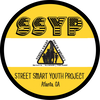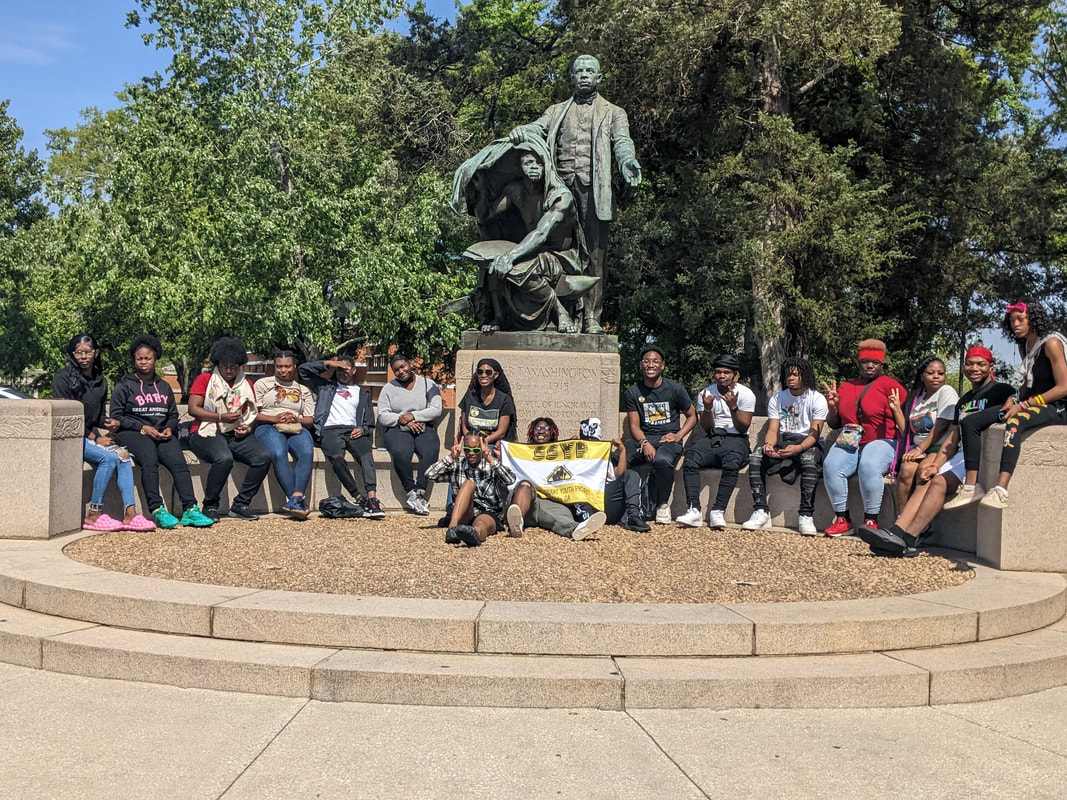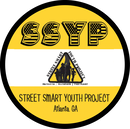YOUTH DEVELOPMENT
YOUTH DROP-IN Centers
SSYP drop- in centers provide youth, ages 14-18, with a safe and structured enrichment environment.
The drop-in program intentionally addresses various components of health via youth development, prevention and early intervention services. These components of health include mental health and emotional well-being, physical health and wellness, as well as financial literacy, personal and leadership development, academic enrichment, cultural exposure and access to vocational readiness and employment opportunities. The underlying philosophy for the program is that dosage over time increases impact; therefore, youth are encouraged to stay and receive as many services possible over a 2-5 year time period. Many youth programs are time limited, offering 6-12 week sessions or restricting the length of participation to certain times of the year. The SSYP drop-in program differs in several ways from conventional out of school time programs.
- Safe Place and Opportunities for Enrichment- Street Smart Youth Project addresses the needs of youth via the provision of a safe and consistent space, which is youth friendly, and youth driven. Our target population negotiates violence and toxic stress on a daily basis. Our drop-in center design provides a place where there is an atmosphere of structure, growth and acceptance. Furthermore, it is an environment of celebration, which encourages pride, and a sense of belonging. The youth decorate and decide on all physical space designs. In addition, daily, they are given opportunities to participate in diverse program offerings including swimming lessons, DJ academy, music production, African dance, hip-hop, fitness classes, basketball, etc.
- Behavioral Health and Wellness- Street Smart Youth Project addresses the needs of youth and young adults via evidence-based prevention and early intervention programming. The behavioral issues we focus on include STD/HIV/teen pregnancy prevention as well as substance use prevention and healthy relationships. The goal of these evidence-based interventions is to decrease risky behaviors whilst developing critical self-efficacy and intentions to practice healthy behaviors. Through this programming, we are able to provide measurable outcomes relating to knowledge gain, skill attainment and behavioral change. Currently, we utilize Becoming a Responsible Teen, Focus on Youth, Botvin Life Skills and Project MAGIC. This need for prevention and early intervention in the populations we serve is self-evident. The rates of substance use, STD/HIV and teen pregnancy among youth in our targeted communities is significantly higher than the national average. There are cultural and environmental factors which play a role in this and our programming promotes cultural competency in addressing these issues.
- Mentoring- Street Smart Youth Project uses a multi-tiered approach to mentoring. We provide weekly group sessions, which focus on development of self, mindfulness and skill acquisition. SSYP utilizes the Brotherhood/Sisterhood Sol program, which emphasizes personal growth and development as well as responsibility to one's community. In addition to the group format, we provide individual mentoring with skilled staff and volunteers. This allows youth and young adults to establish and maintain relationships with healthy adults. Many of our families have low parental involvement due to cyclical patterns of maladaptive behaviors and chronic stress and illness. Our mentoring provides additional supports, which are critical in adolescent development.
- Academic Support and Case Management- Many of our youth have biological/physiological impairments due to predisposition to drugs/alcohol. This creates unique challenges academically. SSYP programming endeavors to assist with IEP compliance and additional resources, which can support each youth. We provide consistent incentives for homework completion and improved progress reports. SSYP creates opportunities for academic success and career exploration via in- services, college tours and tutoring. Case Management services allow each family to be informed and referred to resources that will enhance the families functioning. This includes housing, vocational and mental health services.
- Exposure- SSYP addresses the needs of our youth via exposure. Young adults too often become products of their environments, as they are not given opportunities that allow them to explore the world beyond the stressors of their homes and community. This lack of exposure creates deferred dreams and repeated maladaptive patterns. Additionally, it creates opportunities for systems and cycles to write their stories, versus having our youth create unique narratives, which defy stereotypes and limitations.
Evidence Based Curricula
SSYP offers evidence-based interventions via health education.
Street Smart Youth Project implements evidenced- based prevention curricula throughout the metro Atlanta area. These curricula aim to interrupt negative behaviors, replacing them with more adaptive ones, which promote longer term health and wellness in our communities.
Currently, we deliver these interventions within school and community- based settings. Our interventions utilize cognitive behavioral and social learning theories most important in youth development.
Our Intervention Specialists are skilled; completing 20 hours of training before implementing programming in the community. Please contact us if your school, community based program, and/or youth development organization is in need of our services.
In collaboration with various community organizations, Street Smart Youth Project disseminates information and delivers evidence-based STD/HIV and Alcohol/Substance Abuse prevention workshops.
Currently, we deliver these interventions within school and community- based settings. Our interventions utilize cognitive behavioral and social learning theories most important in youth development.
Our Intervention Specialists are skilled; completing 20 hours of training before implementing programming in the community. Please contact us if your school, community based program, and/or youth development organization is in need of our services.
In collaboration with various community organizations, Street Smart Youth Project disseminates information and delivers evidence-based STD/HIV and Alcohol/Substance Abuse prevention workshops.
Focus on Youth (FOY)
Curriculum Overview
Focus on Youth is a community-based 8-session HIV, STD and pregnancy prevention intervention for African American youth. It provides youth with the skills and knowledge to make healthy decisions that will prevent unplanned pregnancy, HIV and other sexually transmitted diseases. The curriculum uses fun, interactive activities such as games, role plays and discussions, and community projects to convey prevention knowledge and skills. The intervention was updated from Focus on Kids, a community-university linked research and intervention program.
Becoming a Responsible Teen (BART)
Curriculum Overview
Becoming a Responsible Teen: An HIV Risk Reduction Program for Adolescents(BART) is an HIV prevention curriculum designed primarily for African-American adolescents, ages 14-18, in non-school, community-based settings. It consists of eight sessions, 1.5 to 2 hours each, and includes interactive group discussions and role plays that have been created by teens. Teens learn to "spread the word" to their friends about HIV risks. They are encouraged to practice skills outside the group and share the results. The group provides creative solutions to reported problems. Although the focus of BART is HIV/AIDS prevention, the curriculum includes topics and activities relevant to teen pregnancy prevention. Teens learn to clarify their own values about sexual decisions and pressures as well as practical skills to reduce sexual risk-taking. These include correct condom use, assertive communication, refusal techniques, self-management, and problem solving. Also, abstinence is woven throughout the curriculum and is discussed as the best way to prevent HIV infection and pregnancy. BART has been used in a variety of settings with youth from different cultures.
Botvin LifeSkills Training (LST)
A Substance Abuse and Violence Prevention Program
Curriculum Overview
The Botvin LifeSkills Training High School program is an evidence-based substance abuse and violence prevention program. It is a highly interactive, skills-based program designed to promote positive health and personal development for high school youth. Based on the highly effective LifeSkills Training curriculum, this program helps adolescents navigate the challenges of the high school years and prepares them for the independence and responsibilities that they will encounter as young adults. The LifeSkills Training High School program uses developmentally appropriate, collaborative learning strategies to help students achieve competency in the skills that have been shown to prevent substance use, violence, and other health risk behaviors.
Curriculum Overview
Focus on Youth is a community-based 8-session HIV, STD and pregnancy prevention intervention for African American youth. It provides youth with the skills and knowledge to make healthy decisions that will prevent unplanned pregnancy, HIV and other sexually transmitted diseases. The curriculum uses fun, interactive activities such as games, role plays and discussions, and community projects to convey prevention knowledge and skills. The intervention was updated from Focus on Kids, a community-university linked research and intervention program.
Becoming a Responsible Teen (BART)
Curriculum Overview
Becoming a Responsible Teen: An HIV Risk Reduction Program for Adolescents(BART) is an HIV prevention curriculum designed primarily for African-American adolescents, ages 14-18, in non-school, community-based settings. It consists of eight sessions, 1.5 to 2 hours each, and includes interactive group discussions and role plays that have been created by teens. Teens learn to "spread the word" to their friends about HIV risks. They are encouraged to practice skills outside the group and share the results. The group provides creative solutions to reported problems. Although the focus of BART is HIV/AIDS prevention, the curriculum includes topics and activities relevant to teen pregnancy prevention. Teens learn to clarify their own values about sexual decisions and pressures as well as practical skills to reduce sexual risk-taking. These include correct condom use, assertive communication, refusal techniques, self-management, and problem solving. Also, abstinence is woven throughout the curriculum and is discussed as the best way to prevent HIV infection and pregnancy. BART has been used in a variety of settings with youth from different cultures.
Botvin LifeSkills Training (LST)
A Substance Abuse and Violence Prevention Program
Curriculum Overview
The Botvin LifeSkills Training High School program is an evidence-based substance abuse and violence prevention program. It is a highly interactive, skills-based program designed to promote positive health and personal development for high school youth. Based on the highly effective LifeSkills Training curriculum, this program helps adolescents navigate the challenges of the high school years and prepares them for the independence and responsibilities that they will encounter as young adults. The LifeSkills Training High School program uses developmentally appropriate, collaborative learning strategies to help students achieve competency in the skills that have been shown to prevent substance use, violence, and other health risk behaviors.
Project MAGIC
(Making a Group and Individual Commitment)
Curriculum Overview
Project MAGIC is an alternative to juvenile detention for first-time offenders and a collaborative prevention program for youth and young adults between the ages of 12 and 18.The goals of the program include helping youths achieve academic success; modifying attitudes about alcohol, tobacco, and other drugs; and enhancing life skills development and internal locus of control. Each group is made up of 8 to 10 teens who are entry level, less serious offenders. Sexual or violent offenders are not admitted. Participants meet two or three times a week, 1.5hours session for approximately two months. The youth component consists of a 20-session skills-building curriculum offered to groups of 8-10 youths. Facilitation of this program include schools, youth serving organizations and community based organizations.
Making Proud Choices
Curriculum Overview
Making Proud Choices! An Evidence-Based, Safer-Sex Approach to Teen Pregnancy and HIV/STD
Prevention is an 8-module curriculum that provides adolescents with the knowledge, confidence and skills
necessary to reduce their risk of sexually transmitted diseases (STIs), HIV and pregnancy by abstaining
from sex or using condoms if they choose to have sex. The intervention is based on cognitive-behavioral
theories, focus groups and extensive experience working with youth. Making Proud Choices! is an
adaptation and extension of the original Be Proud! Be Responsible! curriculum that integrates teen
pregnancy prevention along with HIV/STI prevention.
Internships/Vocational Skills Training
Program Overview
The Street Smart Youth Project Internship Program provides work readiness skills for under- resourced youth. The internship program provides paid training for young adults, ages 16-21.
Skills and Deliverables
In-service Training
To continuously promote improvement, growth and training for interns, youth participate in monthly in-service trainings focused on leadership development, work readiness, financial literacy, entrepreneurship, and much more. The topic of each in-service training is listed below.
Service Learning Project
(Making a Group and Individual Commitment)
Curriculum Overview
Project MAGIC is an alternative to juvenile detention for first-time offenders and a collaborative prevention program for youth and young adults between the ages of 12 and 18.The goals of the program include helping youths achieve academic success; modifying attitudes about alcohol, tobacco, and other drugs; and enhancing life skills development and internal locus of control. Each group is made up of 8 to 10 teens who are entry level, less serious offenders. Sexual or violent offenders are not admitted. Participants meet two or three times a week, 1.5hours session for approximately two months. The youth component consists of a 20-session skills-building curriculum offered to groups of 8-10 youths. Facilitation of this program include schools, youth serving organizations and community based organizations.
Making Proud Choices
Curriculum Overview
Making Proud Choices! An Evidence-Based, Safer-Sex Approach to Teen Pregnancy and HIV/STD
Prevention is an 8-module curriculum that provides adolescents with the knowledge, confidence and skills
necessary to reduce their risk of sexually transmitted diseases (STIs), HIV and pregnancy by abstaining
from sex or using condoms if they choose to have sex. The intervention is based on cognitive-behavioral
theories, focus groups and extensive experience working with youth. Making Proud Choices! is an
adaptation and extension of the original Be Proud! Be Responsible! curriculum that integrates teen
pregnancy prevention along with HIV/STI prevention.
Internships/Vocational Skills Training
Program Overview
The Street Smart Youth Project Internship Program provides work readiness skills for under- resourced youth. The internship program provides paid training for young adults, ages 16-21.
Skills and Deliverables
In-service Training
To continuously promote improvement, growth and training for interns, youth participate in monthly in-service trainings focused on leadership development, work readiness, financial literacy, entrepreneurship, and much more. The topic of each in-service training is listed below.
- Resume Building
- Career Exploration
- The 5 Stages of Team Development
- Financial Literacy
- Conflict Resolution
- Cultural Diversity
- Entrepreneurship & Business Planning
- Goal Setting
- Positive Youth Development
- Communication Skills
- De-escalation & Safety
- Evidence Based Prevention Education- Facilitation
Service Learning Project
- Each internship cohort is required to develop and implement a service learning project. The service project is designed to be an intentional step towards bettering the community, while also upholding the mission of Street Smart Youth Project, Inc. The service learning project is also an opportunity for the interns to demonstrate their leadership capabilities in the community, as well as to be the change they wish to see. Moreover, it allows interns to learn the skills needed to impact change.
- Another component of the SSYP Internship Program is learning key functional and life skills. It is important that youth develop life skills that may not be taught in school/home settings. Youth interns are encouraged to obtain their driving permit and license, as well as open a checking and savings account. Additionally, interns are expected to create a cover letter and resume and complete necessary documents for post-secondary education (FAFSA/college applications/scholarships).
- Youth interns participate in weekly outreach and community development efforts. To support the mission of SSYP, interns disseminate condoms, food, and hygiene kits throughout our target communities. Interns are thoroughly trained on the purpose of community outreach and how to interact with community members. Youth interns also participate in other community events such as hosting SSYP display tables at community health fairs and events, community clean ups, partnering with other community organizations, and other activities designed to give back to their community. Through outreach and community development, interns are able to take steps in making their community a better place while also learning valuable tools needed to build a sustainable community.
- Youth interns are required to serve on the SSYP Youth Council Advisory Board. The purpose of the Youth Council Advisory Board is to allow youth to have an input on the outcomes of the organization. As a youth serving organization, it is important to have youth input in decisions that are made for them. Interns are given the opportunity to be leaders and represent the organization among their peers.
- To keep interns well-informed about their progress, provide feedback, recognize quality performance, and set expectations for future performance, interns are given a monthly evaluation. The evaluation covers attendance, quality of work, compliance of company policies, teamwork, and professional behavior. Monthly evaluations allow interns and staff to determine areas of improvement, as well as areas where the intern is excelling. This is beneficial in tracking growth, as well as making sure the internship program is intentional in ensuring youth interns are gaining skills to prepare them for future employment. Monthly evaluations also allow opportunity for interns to voice their experiences and provide feedback to SSYP staff.
- Youth interns attend off-site conferences and events to be inspired by motivational speakers, learn practical skills that help them grow as leaders in their community and future careers, and to meet/connect with like-minded youth. Additionally, youth interns are appointed to leadership roles within the organization. For example, an intern may be youth council President, co- facilitate an evidence- based program, and/or create and lead an activity for drop- in programming.
- Youth interns will be afforded 1:1 mentoring with a paired professional (volunteer or SSYP staff). This mentor relationship will endeavor to foster a clear vision of short- term and long- term goals toward success. The goals will focus on identifying career/collegiate pathways and personal wellness goals.



